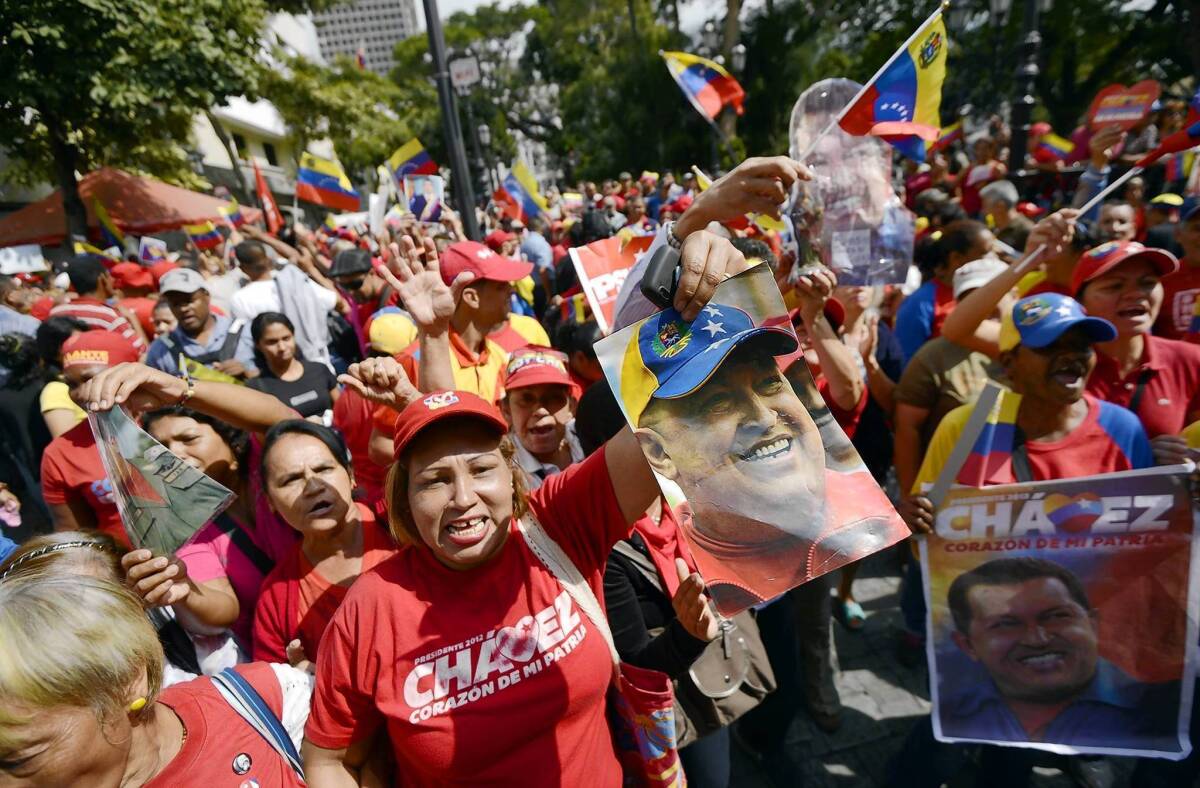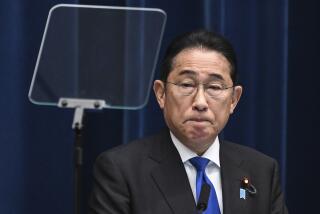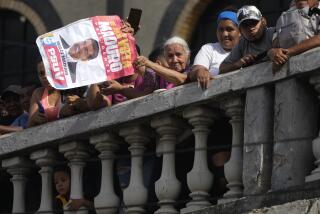Venezuela leader’s return may boost pressure for new vote

- Share via
CARACAS, Venezuela — President Hugo Chavez’s return to Venezuela after cancer treatment in Cuba answered questions about whether he was still alive and triggered impassioned rallies among his supporters. But continued concern for his health and decisions made during his 10-week absence may only increase pressure for new elections to choose a successor.
Among the political factors at work, analysts said Monday, is the 46% devaluation of Venezuela’s currency ordered this month by Chavez’s designated political heir, Vice President Nicolas Maduro. The move could carry political costs in the long term that would make it expedient for Chavistas to hold quick elections if the president is too ill to govern.
The Venezuelan Constitution calls on the president of the National Assembly to hold new elections once an incumbent resigns or is deemed unfit to hold office. With Chavez battling cancer for which he has undergone four surgeries, that determination may not be far off.
As a result of the devaluation, Venezuelans’ real income may decrease by 20% this year and inflation could rise 30%, said Francisco Monaldi, visiting professor at Harvard’s Kennedy School of Government. Such economic fallout will most hurt poor Venezuelans — Chavez’s core supporters —because they spend a higher portion of their income on imported food, he said.
“The popularity of the government could fall at least 5 percentage points in the next few months” because of the devaluation, Monaldi said, adding that Chavez’s lieutenants should try to hold elections “very fast” before the full impact of the weaker currency is felt.
During Chavez’s absence, Maduro ordered the devaluation of the bolivar, bringing it to 4.30 to the dollar, down from 6.30, at the official exchange rate. On the black market, it takes as many as 20 bolivares to buy a dollar. In addition, rumors are swirling that the government may impose rationing to deal with the increasing scarcity of staples such as rice, beans, chicken and cooking oil.
Chavez arrived in the capital early Monday and was admitted to a military hospital in the impoverished San Martin barrio in west Caracas. There were no official photos of his arrival; the only ones released since his most recent surgery on Dec. 11 were made public Friday. Government sources said he was still having difficulty speaking because of a respirator in his throat.
Chavez’s return did little to clarify his medical condition. He was diagnosed with cancer in June 2011, but the precise type and its location have never been revealed.
Hundreds of supporters gathered Monday in the historic center of Caracas and near the military hospital to show their support. The government is said to be organizing massive demonstrations for later this week.
Chavez was elected to a fourth presidential term in October but was unable to take the oath of office Jan. 10 because he was hospitalized.
In what some experts said was a contradiction to the constitution, which specifies the president has to be present in Venezuela to be sworn in, the Supreme Court ruled that Chavez did not need to take the oath to start his new term and that the inauguration could be postponed indefinitely.
Before leaving for Cuba in December, Chavez designated Maduro as his successor, a move that opposition figures also have called unconstitutional. The opposition has demanded, to no avail, that Chavez be examined by a nonpartisan medical team to ascertain whether he is fit to govern.
Eric Farnsworth, vice president of the Washington office of the Americas Society, said Chavez’s return didn’t diminish the constitutional crisis that is gripping Venezuela in light of his long stay in Cuba and the questionable constitutionality of his designating Maduro as his successor.
“His incapacitation and his designation of the uninaugurated Maduro to run things in his absence has been a pretty clear interruption of constitutional democracy,” Farnsworth said.
As for Chavez’s health, Farnsworth noted that his return “in the dead of night rather than the celebratory welcome at the airport that would otherwise have been expected is revealing.”
Chavez’s return, despite the appearance that he has not fully recovered from surgery, may in part have been a response to increasing pressure from opposition groups. On Monday, students spent a fifth day at the Cuban Embassy in Caracas in protests originally called over Chavez’s absence.
Jose Manuel Puente, an economist at the Institute of Advanced Management Studies in the capital, said this month’s devaluation of the bolivar is the fifth such adjustment in the last decade and is evidence of the government’s “poor exchange-rate and macroeconomic management.” The effect is greatest on “the most humble, who dedicate a higher portion of their income” to food and household goods, he said.
Special correspondents Kraul reported from Barra de Navidad, Mexico, and Mogollon from Caracas.
More to Read
Sign up for Essential California
The most important California stories and recommendations in your inbox every morning.
You may occasionally receive promotional content from the Los Angeles Times.













